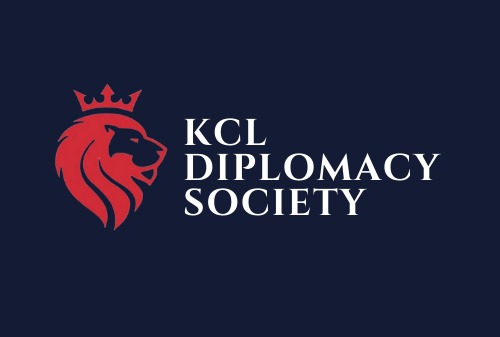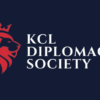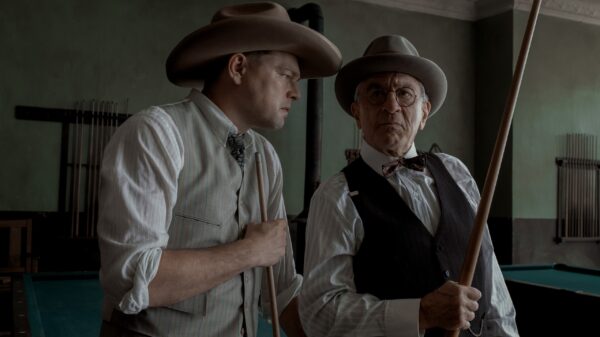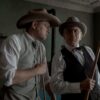Staff writer Thomas Chamberlain recounts the turbulent life of US diplomat, Henry Kissinger.
“Henry Kissinger dies celebrated,” begins Simon Tisdall’s editorial for The Guardian newspaper, mirroring a view shared by many in political spheres. Leaders from across political perspectives and borders had their say on the matter: the Foreign Secretary, Lord Cameron, said, “his wisdom and thoughtfulness shone through.” China’s President Xi Jinping sent his condolences to US President Biden, and Israeli President Isaac Herzog praised the 1979 peace between Israel and Egypt, to which Kissinger “laid the cornerstone.” With such an outpouring of support and condolences to the late diplomat, why does Tisdall’s full headline read, “Henry Kissinger dies celebrated, but why?”
During his time, Kissinger was famous as much as he was infamous. His strong Realpolitik, an ideological style based on rational and pragmatic actions rather than more grandiose ideas, and stronger German accent made him a simultaneously congratulated and contentious figure. Serving under 12 US Presidents both Democrats and Republicans, Kissinger throughout his political career was everywhere in Washington, and even further afield. He laid the groundwork for Chinese American relations in the 1970s, formulated a tirade of nuclear arms control treaties, and championed peace in Vietnam (the latter resulting in him being awarded a Nobel Peace Prize).
What he is also known for, however, is his involvement in the bloody overthrow of the Chilean government in 1973, his support for a Pakistan-led mass murder campaign in Bangladesh, and most controversially his secret bombings of Laos and Cambodia during the Vietnam War. Behind the caring, intelligent, and peace-loving statesman hides a Washington socialite who, at times, had a flagrant disregard for borders and governments. Kissinger laid a web throughout Washington, making him one of the most powerful people in the world.
He did not begin that way. Kissinger was born in 1923 to a Jewish family in the south of Germany, before emigrating to the US in the light of Hitler’s burgeoning Nazi state. He went to Harvard, graduating as a doctor in Political Science. His forte was Realpolitik. It was not this that made him powerful, but instead his talent for influence. This can be seen through the fact that he served both Democrat and Republican Presidents, a feat near impossible for most in American politics, and keeping Kissinger close to power. This led to him becoming foreign policy advisor and US Secretary of State to two Presidents. And after, he was close to Reagan and Clinton’s administrations in the 80s and 90s.
However, what he is most infamous for is his involvement in US attacks on Cambodia and Laos in the early 1970s. During the Vietnam War, the Viet Cong kept many supplies and passages through neighbouring Laos and Cambodia. The neutrality of the two countries, however, did not stop Kissinger from leading a devastating carpet-bombing programme first on Cambodia, then on Laos. The 110,000 tons of explosives dropped on Cambodia led to at least 150,000 dead and a Southeast Asian countryside littered with unexploded bombs and landmines.
In later interviews, he renounced the title of ‘War Criminal’ that many had placed upon him, instead insisting, “if one did an honest account, there were fewer civilian casualties in Cambodia than there have been from American drone attacks.” Yet the case for his criminality is much stronger. He reportedly signed off personally all 3875 attacks, ordering the campaign on “[a]nything that flies, on anything that moves.” His further attacks on Vietnam were done so as to force Vietnam back to the negotiation table.
This sounds even worse when it is remembered that Kissinger won the Nobel Peace prize for his work on the 1973 Paris peace accords. This was so controversial that two Nobel Prize board members quit over the decision; even Kissinger’s North Vietnamese joint-awardee refused the award. Why? Well, because the Paris Peace Accords did not bring peace to Vietnam. Instead, all it did was bring US troops out of Vietnam, half a decade too late for much of the American public. Kissinger was practically awarded a Nobel Peace Prize for a war he did not end, while he was actively supporting another.
Kissinger’s role in Cambodia extends much further than the devastation of US carpet-bombing: the destabilisation of the country as a direct consequence of Kissinger’s actions allowed for the Khmer Rouge to take power and orchestrate a mass genocide. This entire situation led Tom Lehrer to announce, “Political satire became obsolete when Henry Kissinger was awarded the Nobel peace prize.”
Then Kissinger moves his sights to Chile. Salvador Allende had become the socialist President of Chile and had plans for nationalisation and redistribution of land to the Chilean people. This, alongside a spiralling economy and widening political tensions, allowed the CIA to fund a military coup d’état. The US then tried to create a coup climate in the country, excusing the CIA’s involvement in the conflict. For 17 years after, from Kissinger’s initial direction, Chile’s democracy was replaced by a violent and repressive military Junta.
It was actions like these that Evening Standard writer Robert Fox claims to be talking points for “peaceniks”. Kissinger’s political career marked a change in global perspectives to international relations. A country like the United States does not become a hegemonic cultural empire by simply advocating for peace across the world. You indeed cannot make an omelette without breaking a few eggs.
But, to his credit, Kissinger could be a peacenik when he wanted to. He famously created ‘shuttle diplomacy’, a system where a mediator (in this case the US) shuttled between two countries who otherwise would refuse to talk to each other. The 1978 Camp David Accords led to peace between the two nations, sowing the seeds for a future of cooperation, while Kissinger simultaneously brought Israeli troops out of the Sinai and Egypt into the US sphere of influence. Egypt and Israel have even to this day upheld this cooperativeness, starting in 2007 a joint blockade of the Gaza strip, which still lasts to this day.
In the light of the recent Israel-Palestine conflict sparked by a Hamas attack earlier this year, Kissinger’s influence in the Middle East has become as notable as ever. It has also strengthened his controversial nature, as waves of support come flooding in for Palestine across the globe. Kissinger’s ideology made it hard for people to believe her cared so much for peace, a critique common for many who subscribe to Realpolitik. Instead, I am very easily led to believe he carefully constructed situations that would be advantageous for the US.
Kissinger was a master at predicting winners. In 1968, while still President Lyndon B Johnson’s advisor, he revealed secret documents about peace talks for Vietnam to Republican Presidential Candidate, Richard Nixon, which allowed him to spin the event so that Johnson’s Democrats would lose favour with the public. It is unknown whether this influenced the peace talks, but it did allow Nixon to step into the White House as a President and Kissinger as a Secretary of State.
Kissinger was a textbook example of how to conduct oneself in terms of Realpolitik. Maybe the war in Vietnam could have been ended sooner had Kissinger not bombed Laos and Cambodia, but Nixon probably would not have been re-elected. Or the Communists may have influenced Thailand and further. The same could be said about Chile, or Bangladesh, or Cyprus.
This is how you canonise a diplomat, by having their actions speak as a direct step-by-step instruction on how a diplomatic style works: that is why people respect Kissinger so much more. Yes, you could call him a leech on Washington elites, and a power-hungry socialite; but he was also an incredible statesman, essential to America’s path to superstardom, and a hero for diplomats worldwide.
What Kissinger brought to the table was stability, as ironic as it sounds. During Watergate, Kissinger was there acting as a glue to prevent the divided White House from falling in on itself. Kissinger’s prevalence as a consistent member of any US administration’s advisory board on foreign relations made the US consistent, and consistently successful.
The world needed someone like Kissinger during the war in Ukraine. While in the beginning, Kissinger aligned himself with Realpolitik by calling for a ceasefire, he then realised that Ukraine standing as an opponent to Putin’s Russia was essential. Kissinger then supported Ukraine’s induction to NATO, to strengthen his claim. In his own words, he told Ukrainian President Volodymyr Zelensky, “the idea of a neutral Ukraine under these conditions no longer makes sense.”
Tisdall ends his piece with the line, “Kissinger was a man of a different age. It would be good to believe that, with him, that age has passed.” I hope this is the case. The modern world cares so much more about peace, human rights and sovereignty than it did back in the 1970s. Had Kissinger done all he did in today’s context, he would probably have not garnered the same level of respect that he got from Cameron or Jinping. But that does not mean he was not important in his day, and maybe in our day. Henry Kissinger will then forever be remembered both as Kissinger the Butcher and St. Kissinger, patron saint of diplomacy.

















